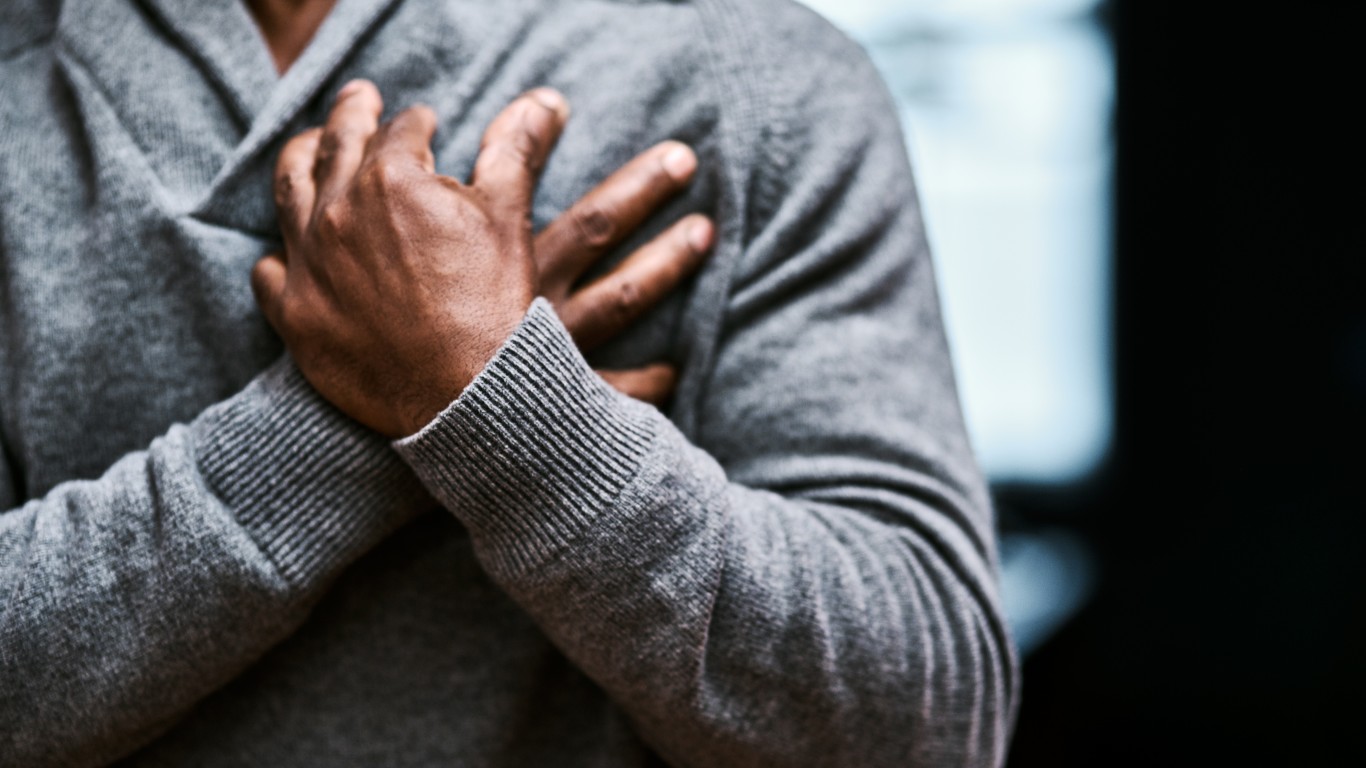

Someone in the United States dies from cardiovascular disease every 38 seconds, according to experts at The American Heart Association Report. Heart disease is the top killer, leading to 610,000 deaths a year, or one in every four fatalities. Almost half of American adults have some form of cardiovascular disease.
Although both medical and surgical advances have helped cut both causes and symptoms, there are two dozen things experts suggest are likely to bring on heart disease, or make it worse.
While some lifestyle choices such as smoking, heavy drinking, and sitting too much have long been associated with an increased risk of heart problems, other factors are not as familiar. They include things that cannot be controlled such as a person’s height as well as blood type.
Controllable, but also lesser-known factors, include job occupation and whether a person lives in the city or not. Air pollution, which is common in bigger urban areas, has been linked to buildup of fat in blood vessels, which may eventually lead to heart attack.
Based on a survey of scientists, doctors, and heart and cardiovascular organizations, these are dangers everyone should avoid.
Click here to read about 28 dangerous things experts link to heart disease.

1. Flying
Traveling by air raises risks for people who suffer from heart disease. On flights of more than eight hours, the lower oxygen levels in an aircraft cabin combined with dehydration and sitting down for an extended period of time drive up the risk of blood clot formation. Passing through airport security checkpoints can also affect travelers wearing pacemakers and other medical devices.
[in-text-ad]
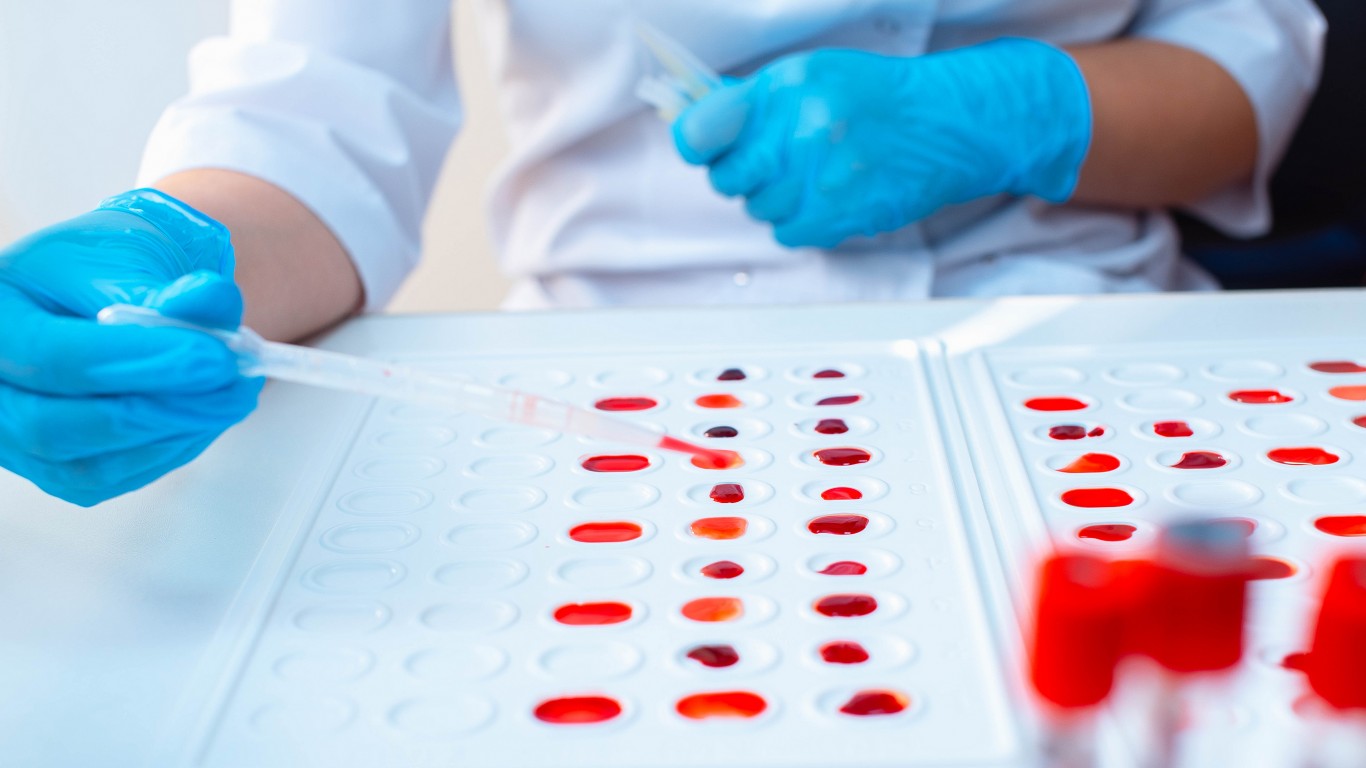
2. Blood type
Among the things people can’t control is blood type and if someone’s blood type is A, B, or AB the risk of dying from cardiovascular disease is 15% higher than for someone with blood type O (O-positive is the most common type). Total cholesterol levels and LDL (bad) cholesterol levels have also been found to be higher in people with blood type A.

3. Loneliness
Feeling lonely is closely associated with higher mortality in both men and women who have a cardiovascular disease than is actually living alone. Loneliness doubles the risk of premature mortality in women and nearly doubles the risk for men. Both sexes are three times more likely to report symptoms of anxiety and depression.

4. Height
Another genetically driven risk for heart disease is height. According to a British study of 200,000 people, the risk of heart disease rises by 14% for every 2.5-inches a person is below average height because of genetic link between height and LDL cholesterol and triglyceride levels. Men are at greater risk than women.
[in-text-ad-2]
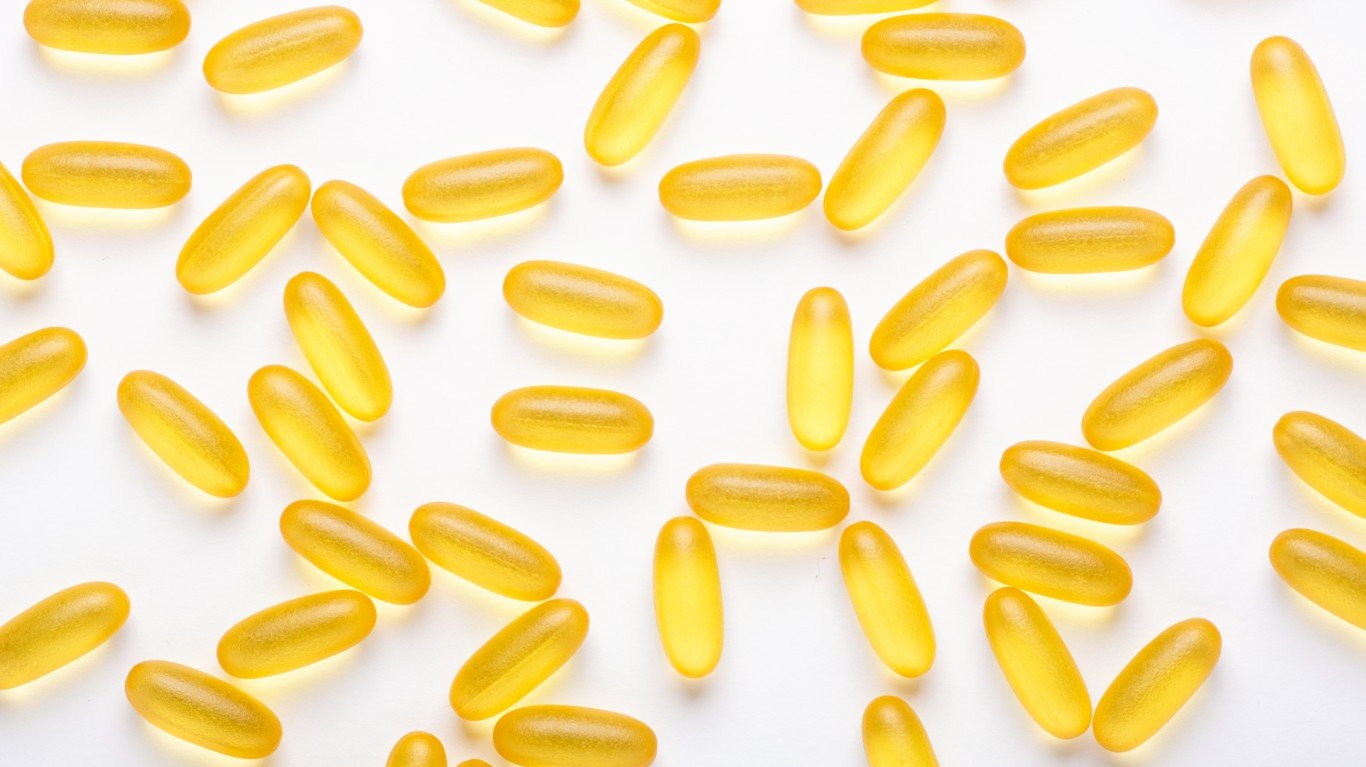
5. Lack of Vitamin D
For people who have low levels of vitamin D, raising their level of the nutrient may result in lowering their risk of heart disease. A recent study of nearly 9,500 people showed that people who raised their vitamin D levels were found to have a 33% lower risk of heart attack. They also had a 20% lower risk of suffering heart failure, and a 30% lower risk of dying within a year. Fortunately, vitamin D supplements are readily available and a little exposure to the sun is also helpful.
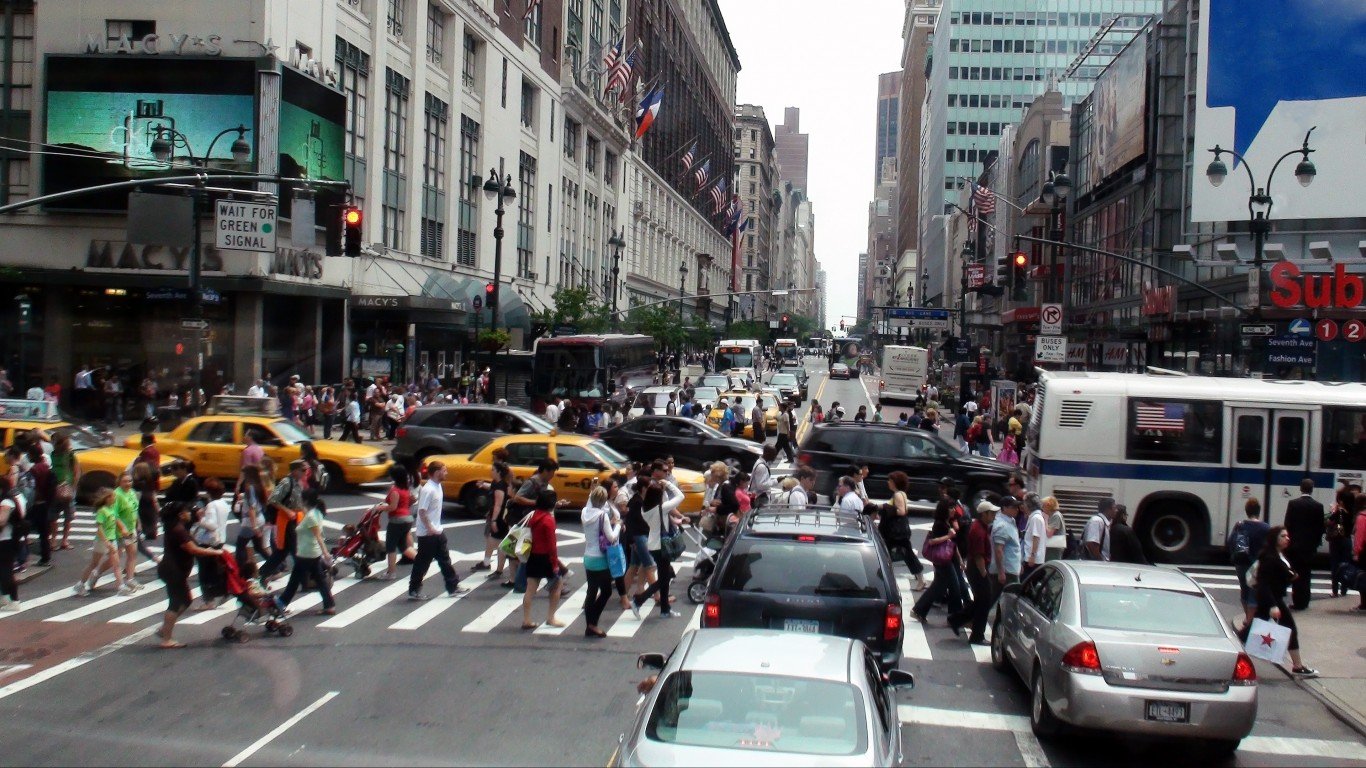
6. Living in a City
Fine particulate matter and higher levels of nitrogen dioxide in city air increase the risk of heart disease by causing a person’s heart to enlarge by 1% to 2%. The heart’s increased size leads to a heart that has to work harder to pump blood and may eventually contribute to heart failure.
[in-text-ad]

7. Your Job
What you do for a living has an impact on your predilection for heart disease. The rate of heart disease and stroke differs among people who are employed (1.9%), those who don’t have a job but are looking for work (2.5%), and those who are not employed and not seeking work (6.3%). People in blue-collar or service jobs are at a higher risk for heart disease and stroke. Almost 3% of people working in the wholesale industry have had heart disease or stroke.

8. Race
Heart disease is the second most prevalent (21%) cause of death among Hispanics. Hispanic Americans face more heart disease risk factors than non-Hispanic whites, but they also less likely to have heart disease and less likely to die from heart disease than whites. Among African-American males, the occurrence of heart disease is lower than among white males, but black females have higher rates of heart disease than white females.

9. Too much exercise
Athletes who compete in endurance sports that require an extreme training regimen may be damaging their hearts and causing problems with their heart rhythms. Repetitive stress at extreme levels may cause physically change the heart by thickening its walls and adding scarring. This can be especially dangerous for people who already have a heart condition.
[in-text-ad-2]

10. A virus
Myocarditis is a virus that causes inflammation in the heart muscle and disrupts the heart’s ability to beat properly. One virus that may infect the heart is rubella (German measles) which is associated with miscarriages and other problems with the fetus. Causing a viral heart infection is not common, likely due to vaccination against measles.
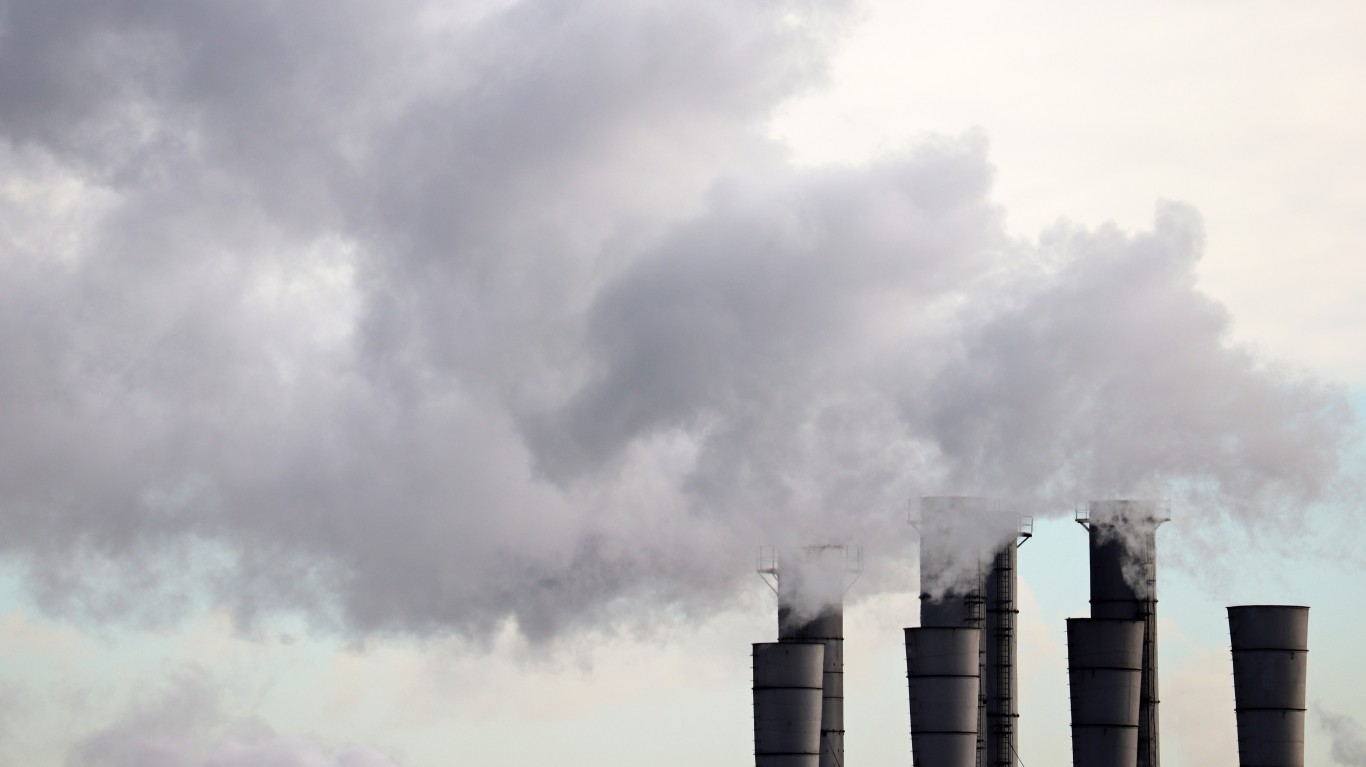
11. Air pollution
The buildup of plaque in a coronary artery (atherosclerosis) has been directly linked to air pollution. Long-term exposure to pollutants like particulates and nitrogen oxides prematurely age blood vessels and leave calcium deposits in coronary arteries, according to a study funded by the Environmental ProtectioN Agency.
[in-text-ad]

12. Too much sleep
Women regularly sleeping for more than nine hours a night may raise the risk of heart disease by 38%. Mortality, from any cause, is also higher among people who oversleep. This, however, may be due to depression and low socioeconomic status, which have strong links to oversleeping and negative health outcomes in general.

13. Too little sleep
While the link between too little sleep and heart disease is not completely established, lack of sleep does affect an adult’s blood pressure and ability to metabolize glucose. Teenagers who don’t get enough sleep tend to exhibit signs of poor health such as higher cholesterol levels and larger waist sizes. Men with severe sleep apnea are 58% more likely to develop congestive heart failure than those who don’t have problems sleeping.

14. Lack of exercise
How exercise affects heart health is well-documented. Lack of physical activity has been known to be a major of cause of chronic diseases, including that of the heart. Less well-understood by most people is how a modest effort–say, an hour a week of walking–pays significant dividends in avoiding high blood pressure and cholesterol levels.
[in-text-ad-2]

15. Meat
Eating more than one serving a day of unprocessed red meat (beef or pork) raises the risk of mortality from heart disease by 13%. Eating processed meats like hot dogs or sausage raises that risk by 20%. Research suggests that red meat’s saturated fat, cholesterol, and iron content are the reasons for the higher risks.
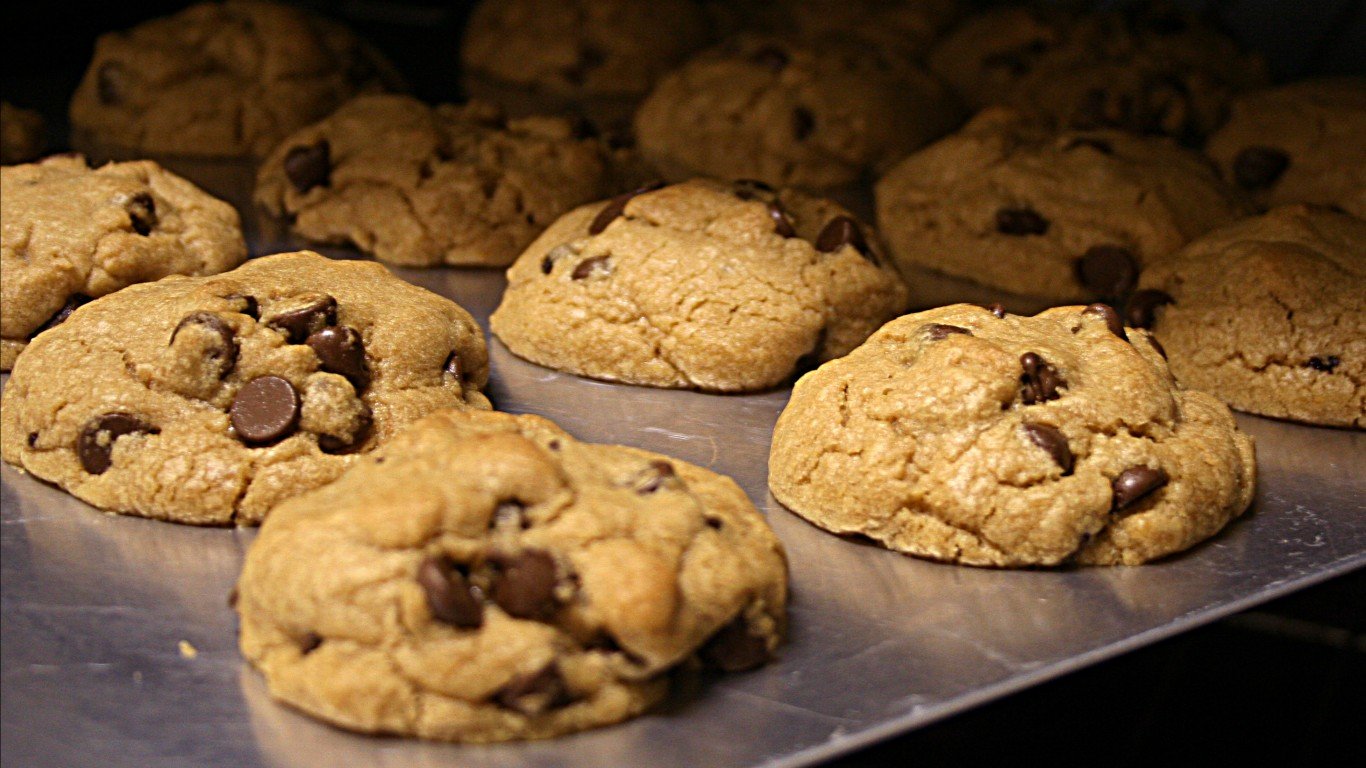
16. Sugar
Added sugars contribute about 10% of the calories in a typical American’s daily diet. For a tenth of Americans, however, added sugars contribute 25% or more of their daily calories and doubles their risk of death from heart disease. About a quarter of the participants in a 15-year-long study whose diet was 25% or more sugar were more than twice as likely to die from heart disease than the the 10% group and not gender, age, physical activity level or body-mass index made any difference.
[in-text-ad]
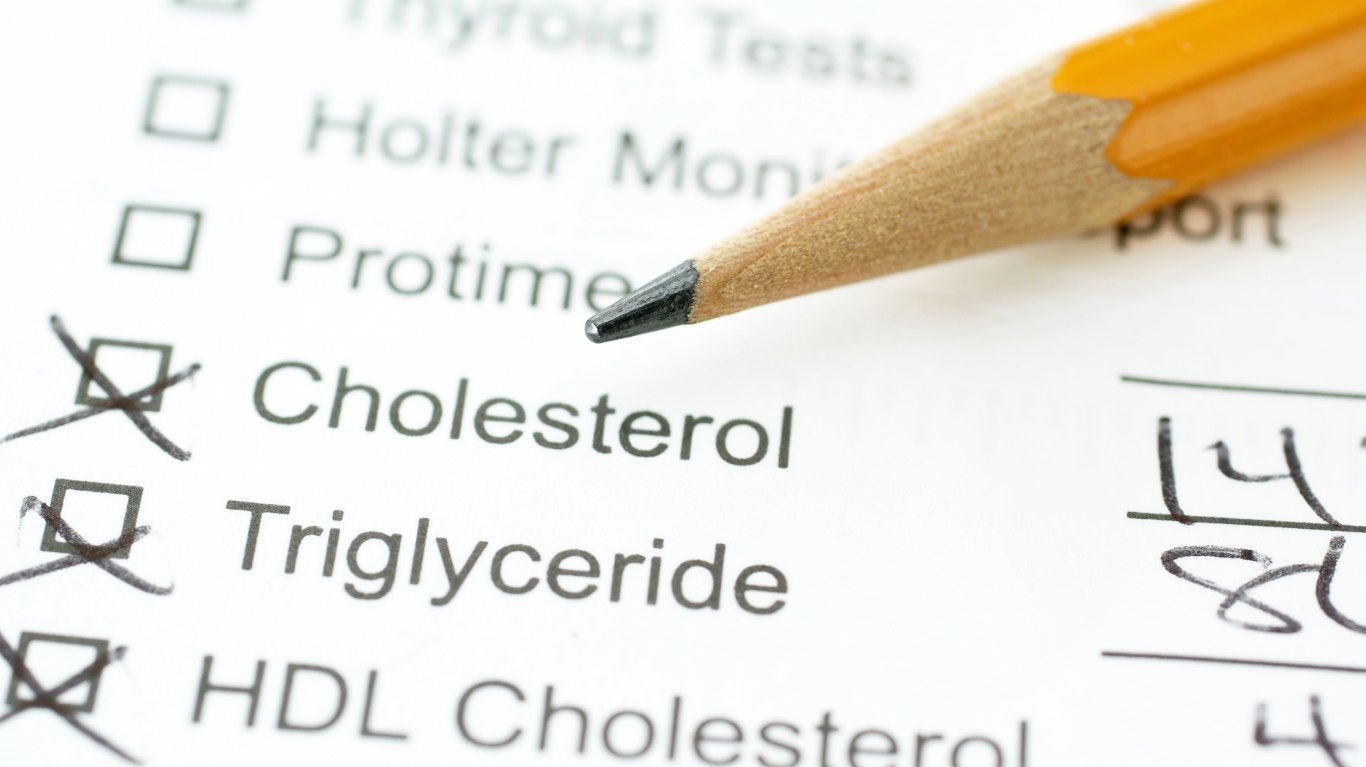
17. Bad vs good cholesterol
Just as LDL cholesterol is not healthy, HDL cholesterol is healthy. The bad news is that LDL cholesterol is present in higher quantity, increasing a person’s risk of heart disease and stroke. HDL cholesterol absorbs LDL and removes it, but only some, not all, of it. HIgh levels of bad cholesterol can result in fat buildup in the blood vessels, narrowing them and blocking blood flow to the heart.
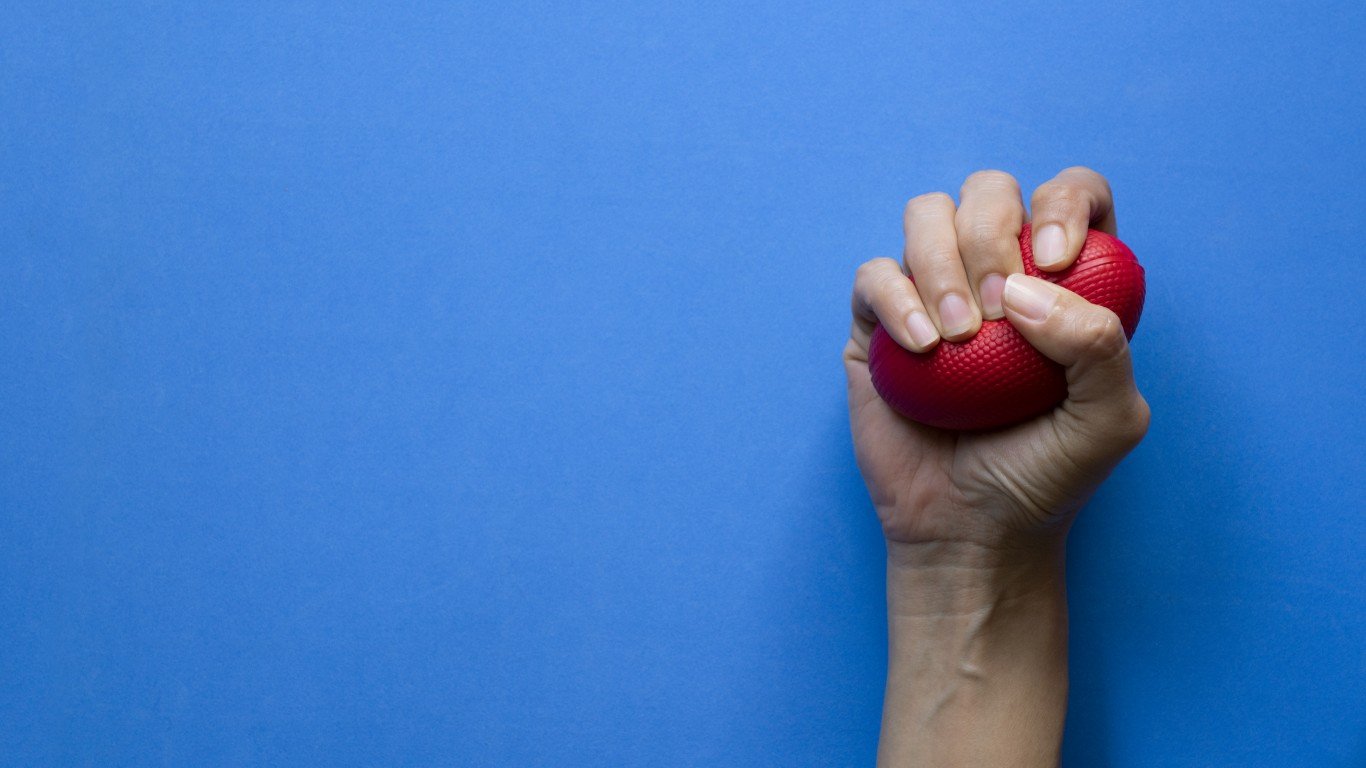
18. Stress
High stress levels cause people to adopt behaviors that can lead to increased risk of heart disease. Eating or drinking too much, smoking, or just sitting on the couch staring into space are all proven to raise the risk of heart disease.
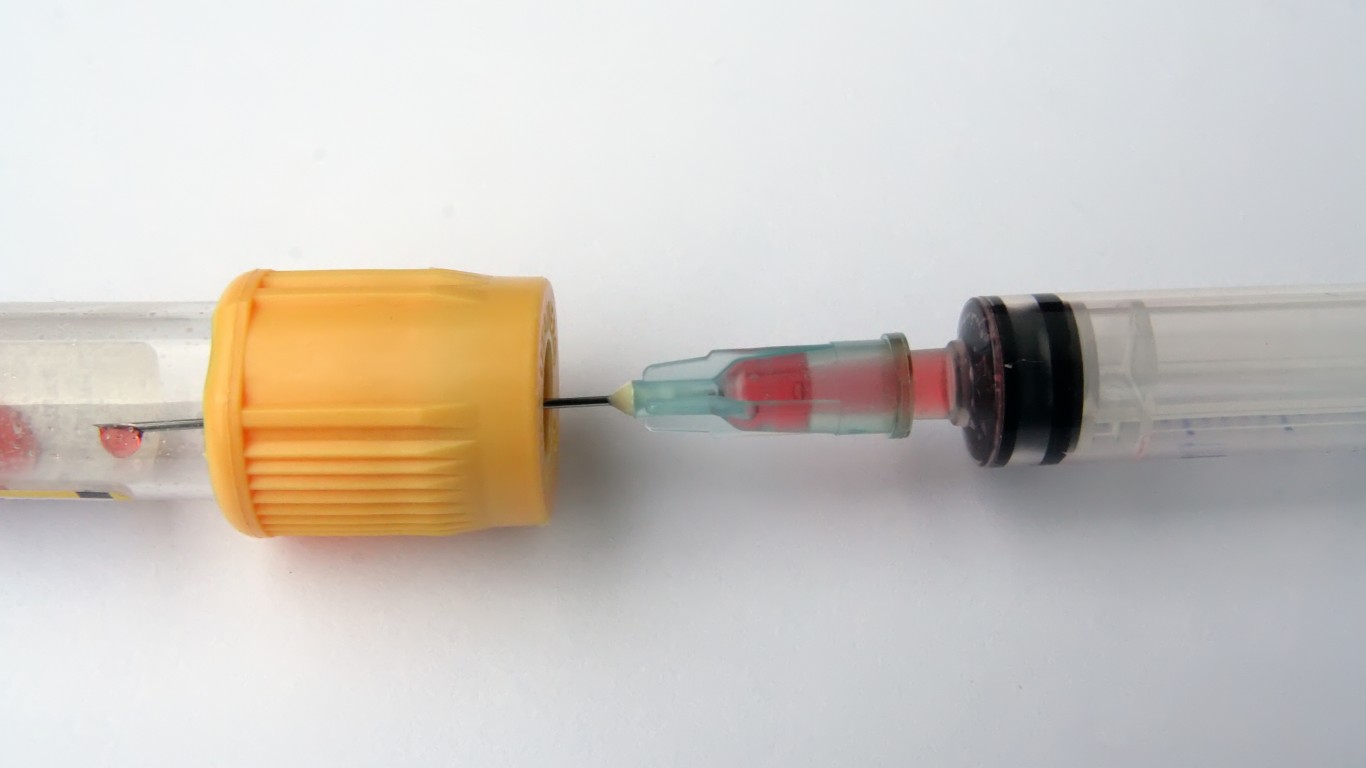
19. Thick blood
Hypercoagulability is the name for a condition that occurs when a person’s blood is thicker and stickier than usual. People affected by the condition are prone to developing excess blood clots which can obstruct the movement of nutrients, oxygen, and hormones to other body tissues and cells, leading to, among other things, heart attack.
[in-text-ad-2]
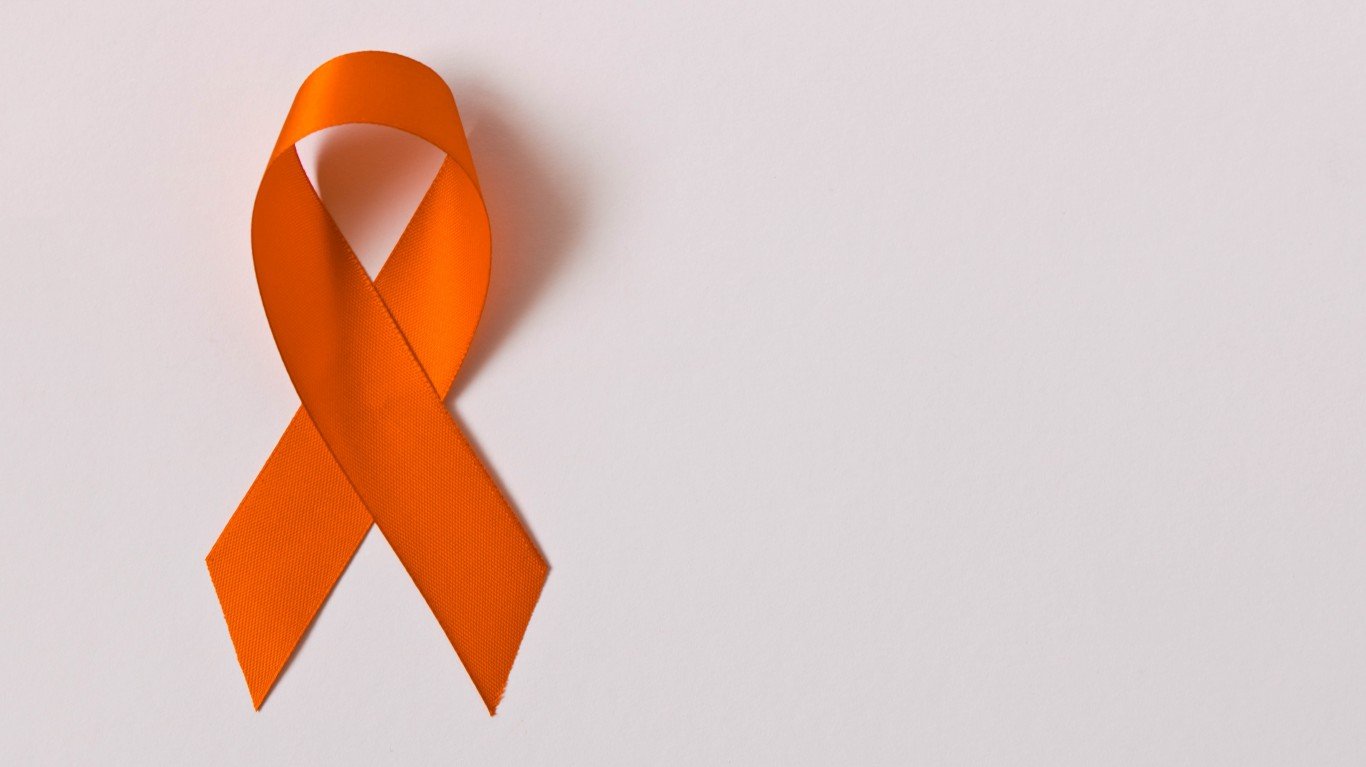
20. Leukemia
While leukemia itself is not related to heart disease, some of the drugs used to treat the cancer can have an adverse effect leading to congestive heart failure, high blood pressure, or heart attacks. Patients on any leukemia-fighting drug often have no alternative and so must weigh the risks of heart disease against the risks of the cancer.
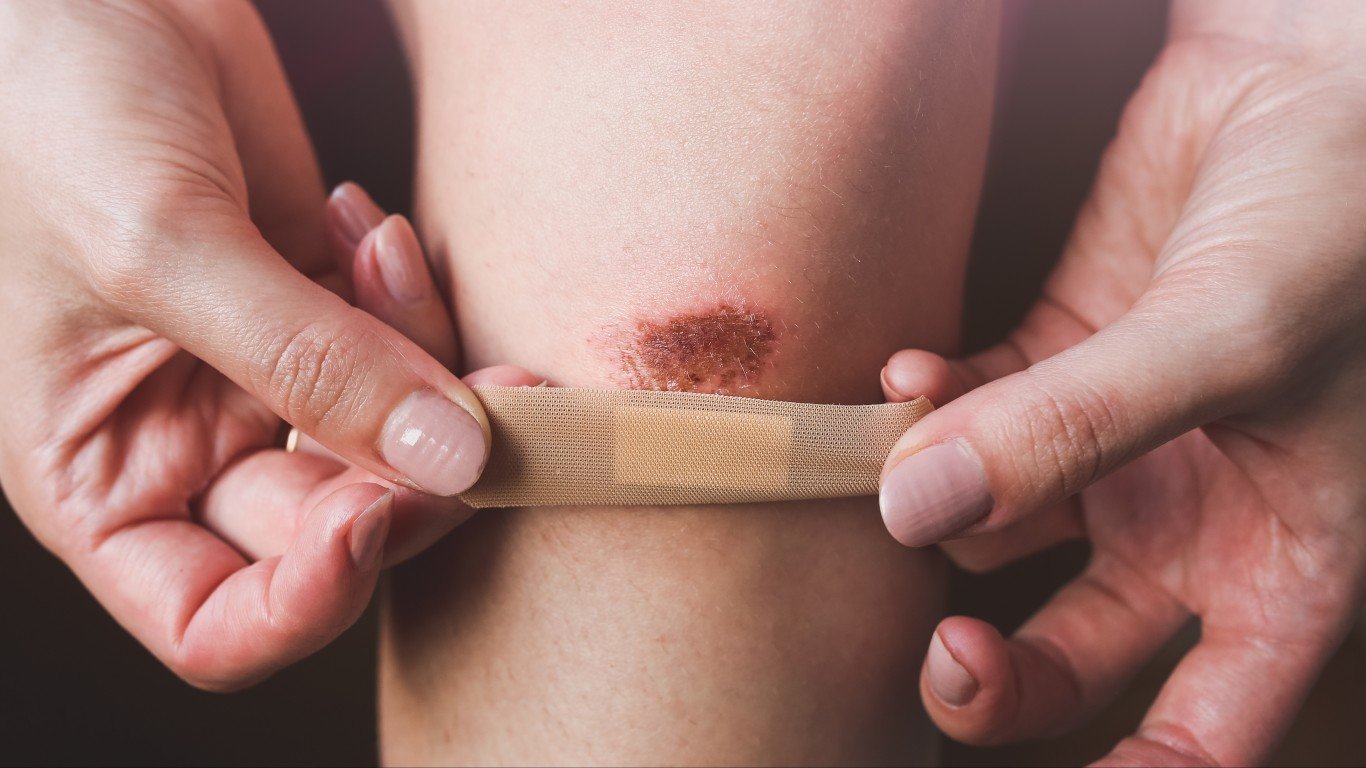
21. Clots
People whose blood is thicker and stickier than usual may more often develop blood clots. Some people inherit this trait while for others it is related to another disease such as various types of cancer and lupus. A blood clot can block a blood vessel, which may lead to chest pain, and even a heart attack.
[in-text-ad]

22. Diabetes
For people who have diabetes, the risk of death from heart disease and stroke almost doubles. High glucose (sugar) levels caused by diabetes can damage blood vessels and nerves that control the heart and the blood vessels. People with diabetes tend to develop heart disease earlier in their lives. Managing the risks of heart disease is very much the same as managing diabetes: stop smoking, lower your blood pressure, and watch your cholesterol, among other things.

23. Gum disease
While there is no proof of a direct link between gum disease and heart disease, some evidence strongly points in that direction. The two conditions may be connected due to inflammation in the gums and bacteria that may lead to narrowing of the arteries. The good news is that taking care of your teeth and gums reduces the risk of gum disease to almost zero.

24. A sedentary lifestyle
A lack of physical activity and exercise raises the risk of heart disease as well as a host of other medical problems such as high blood pressure, high cholesterol, obesity, type 2 diabetes, all of which increase the risk of heart problems. The activity need not be strenuous to begin with, but the benefits of a little regular exercise have been well-established for maintaining heart health.
[in-text-ad-2]

25. Family history
The link between a person’s genetic makeup and added risk of heart disease is strong. For example, if both parents suffered from heart disease before the age of 55, the risk of heart disease in their children is 50% greater than in the rest of the population. The risk is also higher of a male relative was diagnosed with heart disease before the age of 55, and a female relative before 65.

26. Obesity
More than one third of U.S. adults are obese and everyone of those adults is staring at an increased risk of heart disease. Obesity has been linked to risk factors for heart disease like high cholesterol, high blood pressure, type 2 diabetes, hypertension, and heart failure.
[in-text-ad]

27. Heavy drinking
Drinking too much alcohol raises the risks of developing serious heart diseases. Heavy drinking raises blood pressure, bad cholesterol levels, can cause heart arrhythmias, can prevent your blood from clotting, leading to easier bleeding, and may even damage the heart muscle itself.
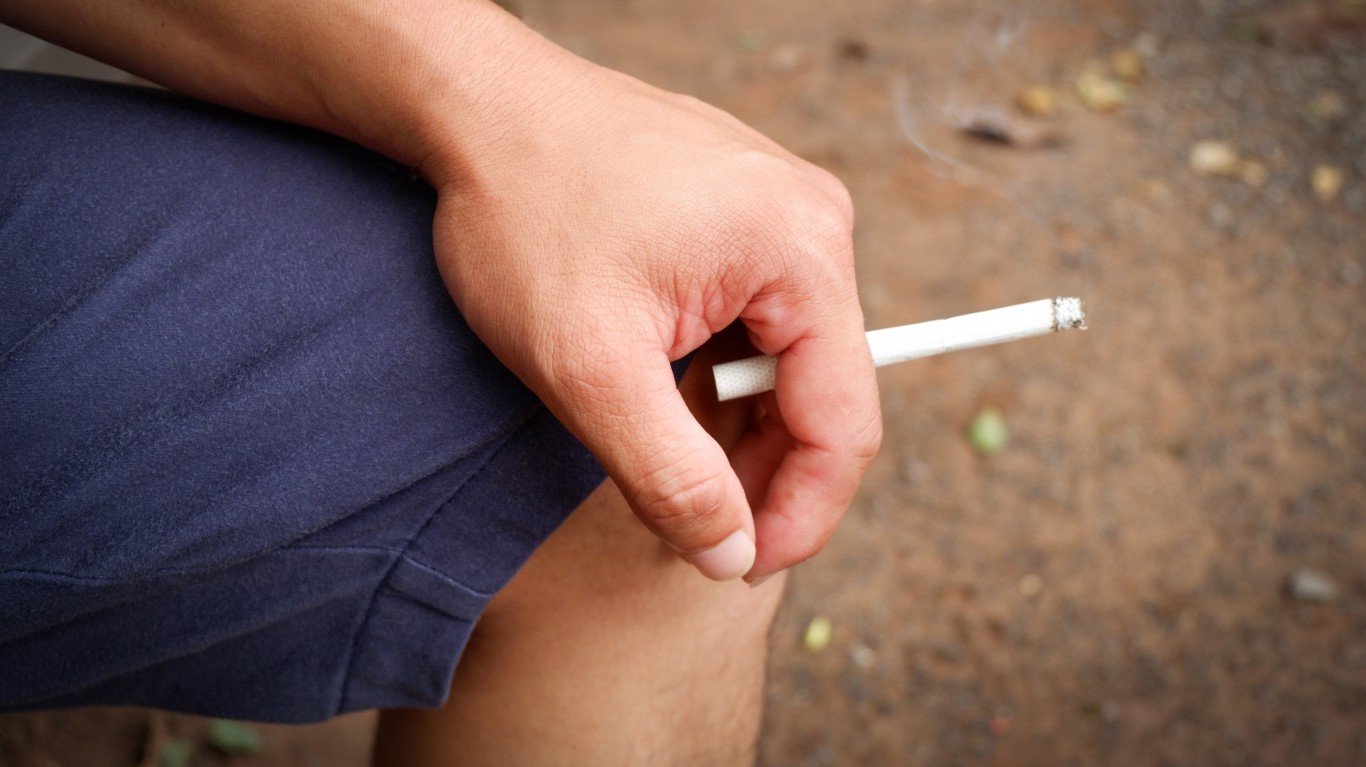
28. Smoking
Smoking is responsible for about one in five U.S. deaths every year. It is also a major risk factor for heart disease which itself is responsible for about 25% of U.S. deaths a year. Smoking increases blood pressure, raises heart rate, raises the risk of blood clots, and damages blood vessels.
Sponsored: Attention Savvy Investors: Speak to 3 Financial Experts – FREE
Ever wanted an extra set of eyes on an investment you’re considering? Now you can speak with up to 3 financial experts in your area for FREE. By simply
clicking here you can begin to match with financial professionals who can help guide you through the financial decisions you’re making. And the best part? The first conversation with them is free.
Click here to match with up to 3 financial pros who would be excited to help you make financial decisions.
Thank you for reading! Have some feedback for us?
Contact the 24/7 Wall St. editorial team.
 24/7 Wall St.
24/7 Wall St.
